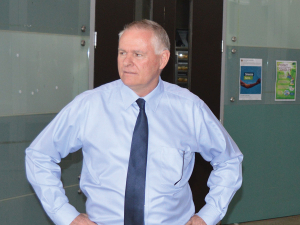Supported by Predator Free 2050 Limited (PF2050 Ltd) and $2.4 million in Jobs for Nature funding, the post-graduate and post-doctoral researchers from University of Auckland, University of Canterbury, Lincoln University, and University of Otago will be researching topics as diverse as genetics, biocontrol, audio lures, and social licence.
“Our work is certainly ambitious, but is a critical step to secure New Zealand’s biodiversity. Despite decades of valuable and dedicated conservation efforts, step-changes are needed to achieve our goals. And to achieve those step-changes, New Zealand needs new science talent to drive the cutting edge research needed,” says PF2050 Ltd science director Dan Tompkins.
Tompkins says the programme has garnered international attention with regards to whether its goal can be achieved.
“As New Zealand always has, we’re backing our local ingenuity and talent. We’ve deliberately looked for diversity of candidates and a breadth of topics,” he says.
The recently launched PF2050 Ltd research strategy crystalises the outcomes for which breakthroughs are most needed to achieve the PF2050 goals, as well as championing the need for more support for and investment in the science that will most help us achieve them.
“Building new science capability is critical for achieving all of New Zealand’s environment goals, not just Predator Free. The investments made here will help establish these researchers’ careers, and their skills and accomplishments will be of immense value to New Zealand in the future.”
The six researchers are:
- Alana Alexander is a post-doctoral student at the University of Otago and will investigate which genes are important to reproduction and survival in possums, mindful of the social and cultural implications of genetics-based pest control.
- Ally Palmer is a post-doctoral student at the University of Auckland who will investigate potential social and ethical challenges to Predator Free 2050.
- Florian Pichlmuller is a post-doctoral student at the University of Auckland and will investigate genomic applications for invasive species control, with a particular focus on mustelids.
- Anna Clark is a Ph.D student at the University of Otago who will explore the dynamics of genetic pest control technology in a multi-species model.
- Brittany Graham is a Ph.D. student at Lincoln University. She has received funding to investigate the integration of control tools and attractants to optimise ground-based pest control.
- Ben McEwen is a Ph.D. student at the University of Canterbury who has received funding to investigate and develop new predator luring technology capable of autonomously identifying invasive predator species and monitoring their populations.








